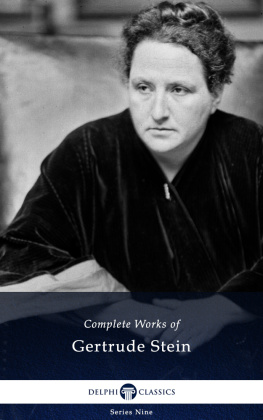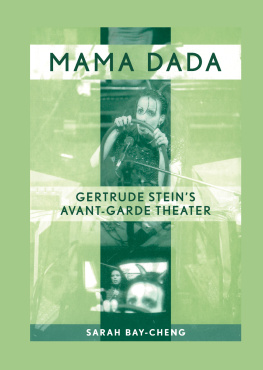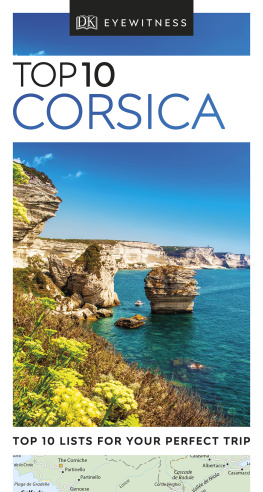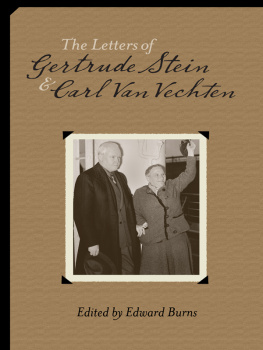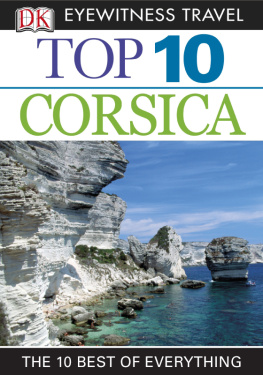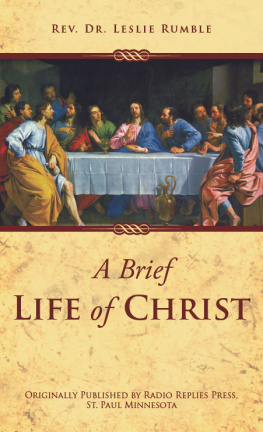Gertrude Forde - A Ladys Tour in Corsica, Vol. 2 (of 2)
Here you can read online Gertrude Forde - A Ladys Tour in Corsica, Vol. 2 (of 2) full text of the book (entire story) in english for free. Download pdf and epub, get meaning, cover and reviews about this ebook. year: 2015, publisher: CreateSpace Independent Publishing Platform, genre: Non-fiction. Description of the work, (preface) as well as reviews are available. Best literature library LitArk.com created for fans of good reading and offers a wide selection of genres:
Romance novel
Science fiction
Adventure
Detective
Science
History
Home and family
Prose
Art
Politics
Computer
Non-fiction
Religion
Business
Children
Humor
Choose a favorite category and find really read worthwhile books. Enjoy immersion in the world of imagination, feel the emotions of the characters or learn something new for yourself, make an fascinating discovery.

- Book:A Ladys Tour in Corsica, Vol. 2 (of 2)
- Author:
- Publisher:CreateSpace Independent Publishing Platform
- Genre:
- Year:2015
- Rating:4 / 5
- Favourites:Add to favourites
- Your mark:
- 80
- 1
- 2
- 3
- 4
- 5
A Ladys Tour in Corsica, Vol. 2 (of 2): summary, description and annotation
We offer to read an annotation, description, summary or preface (depends on what the author of the book "A Ladys Tour in Corsica, Vol. 2 (of 2)" wrote himself). If you haven't found the necessary information about the book — write in the comments, we will try to find it.
A Ladys Tour in Corsica, Vol. 2 (of 2) — read online for free the complete book (whole text) full work
Below is the text of the book, divided by pages. System saving the place of the last page read, allows you to conveniently read the book "A Ladys Tour in Corsica, Vol. 2 (of 2)" online for free, without having to search again every time where you left off. Put a bookmark, and you can go to the page where you finished reading at any time.
Font size:
Interval:
Bookmark:

| Note: | Images of the original pages are available through Internet Archive. See https://archive.org/details/ladystourincorsi02ford Project Gutenberg has the other volume of this work. Volume I: see http://www.gutenberg.org/files/44993/44993-h/44993-h.htm |
GERTRUDE FORDE.
VOL. II.
RICHARD BENTLEY AND SON,
NEW BURLINGTON STREET.
1880.
BECCLES AND LONDON.
| CHAPTER | PAGE |
| I. | En Route for BavellaAn Eccentric Landlord |
| II. | The Forest of Bavella |
| III. | Sartene |
| IV. | The Lion of Roccapina |
| V. | Bonifacio |
| VI. | Curiosities of Bonifacio |
| VII. | A Sermon by the Wayside |
| VIII. | To Vico |
| IX. | Evisa among the Hills |
| X. | Giant Forests |
| XI. | Porto, La Piana, and Carghese |
| XII. | From Carghese to Ajaccio |
| XIII. | Bocognano Bugbears |
| XIV. | The Forest of Sorba |
| XV. | The Inzecca |
| XVI. | The Last of Antonio |
| XVII. | To Bastia from Corte |
| XVIII. | History of Corsica |
EN ROUTE FOR BAVELLAAN ECCENTRIC LANDLORD.
Font size:
Interval:
Bookmark:
Similar books «A Ladys Tour in Corsica, Vol. 2 (of 2)»
Look at similar books to A Ladys Tour in Corsica, Vol. 2 (of 2). We have selected literature similar in name and meaning in the hope of providing readers with more options to find new, interesting, not yet read works.
Discussion, reviews of the book A Ladys Tour in Corsica, Vol. 2 (of 2) and just readers' own opinions. Leave your comments, write what you think about the work, its meaning or the main characters. Specify what exactly you liked and what you didn't like, and why you think so.

